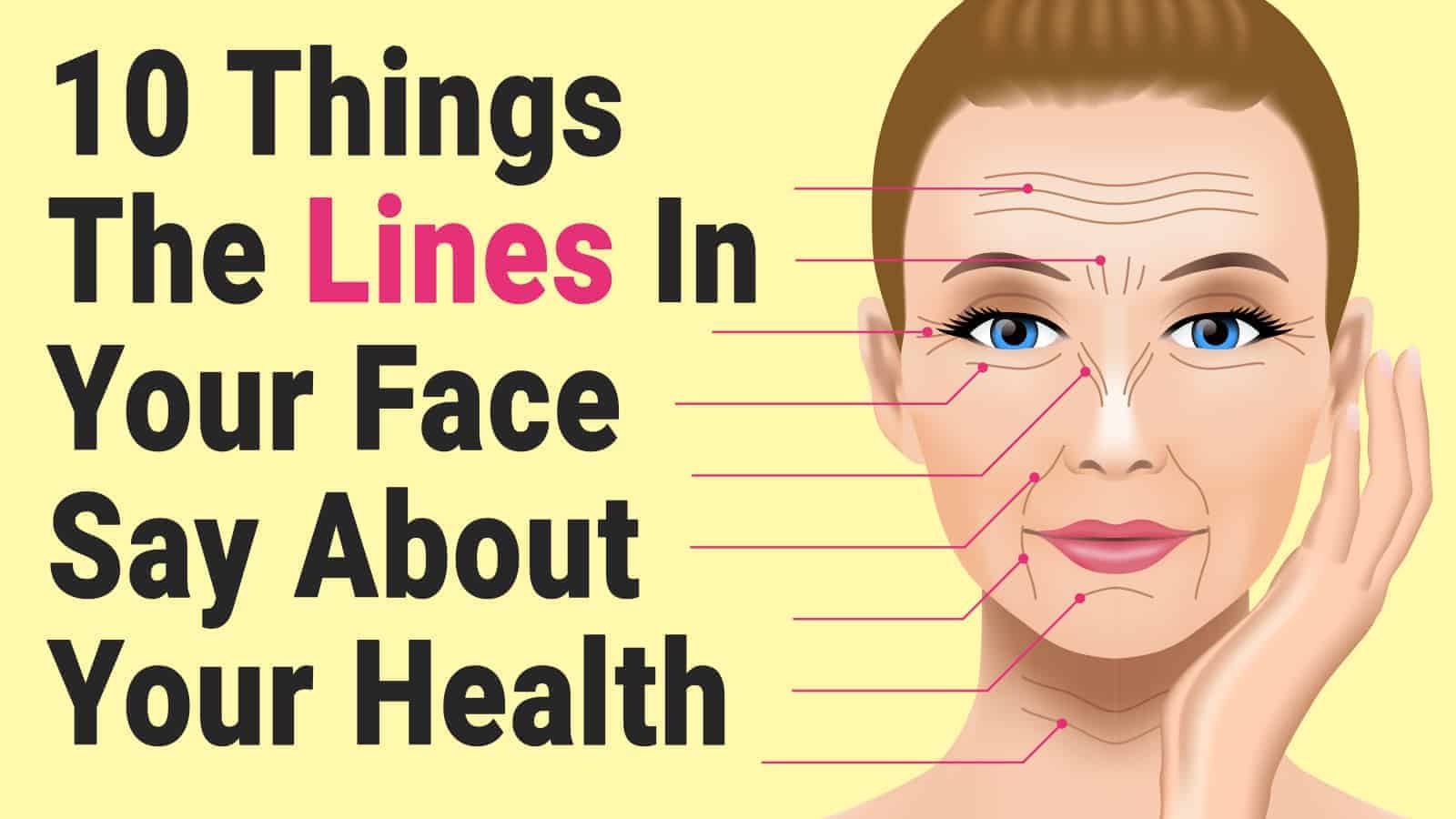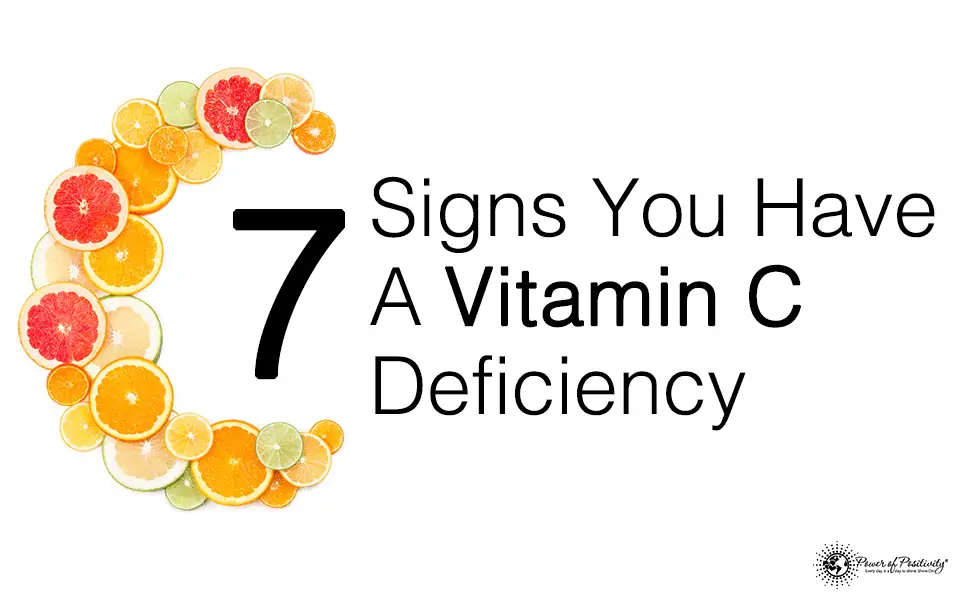Do you know that your face provides many clues to what’s going on inside your body? Most people don’t realize the connection but for thousands of years, ancient healers have relied on the face to determine whether someone is in the pink of health or not.
These days, modern healers still apply the same principles. Only, they’ve expanded these face mapping techniques using technology to make a proper diagnosis based on their patient’s facial symptoms. Here are some things that the lines in your face may say about your health.
Here Are 10 Things The Lines In Your Face Say About Your Health
1. You’re at risk for heart disease
The wrinkles on your forehead could be an early sign of a condition called atherosclerosis, according to members of the European Society of Cardiology. This condition is associated with plaque build-up around the arteries that narrows the arteries. Thus, blood and oxygen supply to your body’s major organs, including the skin, will be limited.
The experts followed and assessed 3,200 adults from the ages of 32 to 62 for two decades. Some 233 participants died during the course of the study, which shed light on the direct relation between forehead wrinkles and the risk of cardiovascular diseases.
- The researchers said that the nature of atherosclerosis and forehead wrinkles are linked to oxidative stress and the depletion of protein levels in the collagen.
- The blood vessels in the forehead are fine and thinner so they are more sensitive to plaque build-up.
- In addition to taking lipid tests and checking the blood pressure, the experts say that forehead wrinkles may also be a marker for heart disease risks.
Doctors should give patients the necessary advice about lowering their risks if forehead wrinkles are significantly visible.
2. You could be hypertensive
If you take good care of your skin then you also take good care of your body. Experts from the Leiden University Medical Center proved this point in a study on aging and appearance. Apparently, men and women who look a lot younger for their age have lower blood pressure than those with bad and sagging skin. A youthful appearance has also been linked to longevity and good health.
But the experts also emphasized that it wasn’t so much the wrinkles and lines that linked to blood pressure. Rather, sagging on the face was the more significant indicator for risk of hypertension.
3. You have weak bones
Experts at Yale University found out that women between the ages of 40 to 50 may also manifest deeper facial wrinkles if they have lower bone density. The skin and the bones need nourishment from collagen proteins; these may decrease in production as a person grows older. Aside from aging, lifestyle habits may also trigger reduced collagen production in the body.
So, the worse the facial wrinkles get, the more it might indicate lower bone density. The experts say that the condition of the skin on the face will be a good reflection of the skeleton’s quality. Thus, many doctors can actually identify if a person is at risk for fracture just by looking at the condition of the skin on your face.
4. You might have a skin cancer risk
If you have wrinkles that look like crepes around your left cheek, you need to get tested for skin cancer. According to dermatologists, this side of the face is more exposed to the sun’s ultraviolet rays when you’re driving. Therefore, it’s at greater risk for sun damage.
The biggest indicator of sun damage is actually sunspots on the skin. If you don’t have this, however, it still doesn’t mean that your skin isn’t damaged. Take notice of your cheek’s left side; visit a dermatologist as soon as possible if you see unusual wrinkling.
In some cases, rough patches on your cheeks may also indicate lung issues. Are you having problems breathing or do you easily get out of breath when exercising? You’ll notice the skin on your cheeks getting aggravated each time this happens.
5. You are under a lot of stress
If there are visible lines near your eyebrows, aside from forehead wrinkles, your body may be signaling that you’re under a lot of stress or repressing negative emotions. When you’re in this state, your body produces more cortisol, which has been linked to premature aging and collagen loss.
While more research needs to be done to prove the direct relationship of stress and wrinkles, plenty of evidence shows that stress may affect the condition of your facial skin.
Though stress is a daily part of living, you can reduce its damaging effects by doing stress-relieving activities like meditating, listening to soothing music, having positive social interactions with your friends, or pampering yourself with leisure and pleasurable endeavors.
6. You’re lacking in iron or have a food intolerance
Typically, you develop dark circles around your eyes when you’re not getting enough sleep. These unflattering marks might also indicate a food intolerance or an iron deficiency.
- Experts say that if you change your diet and reduce dairy and wheat intake, you may see an improvement; the dark circles should lighten.
- You should also see some results if you totally avoid alcohol; even moderate drinking can cause dark circles.
- Increase your intake of iron-rich foods and supplements to get rid of the dark circles. This is especially important if you’re also experiencing frequent fatigue or you’re prone to colds and dizziness.
- You may also take vitamin C supplements to help your body absorb more iron from the vegetables you eat.
Sometimes, the lines around the eyes may also be linked to kidney impairment. Try increasing your water intake and avoiding foods rich in salt. The appearance of your eyes should improve.
7. Your liver is working too hard
If you notice deepening frown lines on the skin between your eyes and by your nose bridge, it might mean your liver is working too hard. You may be eating foods that are high in fat, which do not positively impact your liver.
High-fat meals can easily disrupt the functions of your liver. Saturated fats found in butter and some dairies may force your liver to produce more glucose. These can raise your risks for diabetes and obesity, according to WebMD. You may also be at risk for developing non-alcoholic fatty liver that can worsen as cirrhosis. For these reasons, it’s important to carefully choose the food you eat. As much as possible, avoid high-fat meals.
8. You may have diabetes
Are you bothered by the cracks in the side of your mouth? Do you often experience chapped lips? Dryness around the mouth area is pretty common but it may also be a symptom of diabetes.
Experts still do not know the direct relation of dry mouth to diabetes but the theory is that the dryness may be due to high blood sugar. You may need to get yourself tested for the disease. Also, ask your doctor for advice on how to manage your blood sugar levels to minimize the symptoms.
If you are diabetic and already taking treatments, you might need to change your medication since it could be causing dryness. Also, don’t forgo a visit to the dentist to get a regular cleaning. Taking care of your oral health will bear positive results on your dry mouth. When this isn’t addressed, the condition may lead to complications like periodontitis, candidiasis, gingivitis, and bad breath.
9. You’re vitamin deficient
The largest organ in your body is your skin but it’s also the organ that doesn’t get enough vitamins. So, when you are vitamin deficient, it will easily show on your face as wrinkles, rough patches, dark spots, redness, and dryness.
The four essential vitamins that your body requires daily are vitamin D (600 IU), vitamin C (1,000 mg), vitamin E (15 mg), and vitamin K (90 to 120 mg). You can gain these vitamins from eating foods like:
- Tuna, salmon, codfish, breakfast cereals, yogurt – rich in Vitamin D
- Citrus fruits and plant-based sources like broccoli and spinach – which contain Vitamin C
- Almond nuts, hazelnuts, sunflower seeds – good sources for Vitamin E
- Green and leafy vegetables like lettuce, kale, cabbage, and spinach – rich in Vitamin K
You may also take vitamin supplements if natural food sources aren’t enough. Talk to your doctor or a dermatologist for any recommendations.
10. You generally have an unhealthy lifestyle
Wrinkles are not just signs of aging; they are also a reflection on your lifestyle. If you’ve been abusing your body, the effects will instantly show on your face. Poor and unhealthy lifestyle choices may include:
- Too much indulgence in high-calorie and fatty foods
- Too much sugar and salt in your diet
- Drinking alcohol
- Smoking
- Not getting enough sleep and rest
- Not exercising
- Disregarding sun protection
- Not engaging in positive thoughts
- Not getting a regular check-up with your doctor, especially if you’re over 40
Reassess your lifestyle and try to make some changes for the sake of your health. It should concern you if you notice that your face doesn’t have that youthful glow.
Final Thoughts On What Lines In Your Face Say About Health
The health of your skin is not just important for the sake of appearance. It’s your first defense against the bacteria you’re exposed to every day. And while your skin goes through natural changes as you age, you should not disregard the lines that appear on your face as an effect of getting older.
Your body has a unique system of letting you know that something is wrong. Be aware when it’s “talking” to you. If you’ve been trying to reduce the lines on your skin with creams and other facial products but nothing is improving, then it might be time to look at what’s inside.
A preventive diagnosis is a hundred percent better than dealing with a serious condition. If you catch diseases earlier, your chances for a positive recovery are higher.
This doesn’t mean, however, that you should start to panic when you see wrinkles on your face. But when you’re aware of what these lines in your face could mean, then you’ll start making conscious choices to take good care of your health.
https://www.youtube.com/watch?v=yG-G9_LOkLA














 Community
Community

